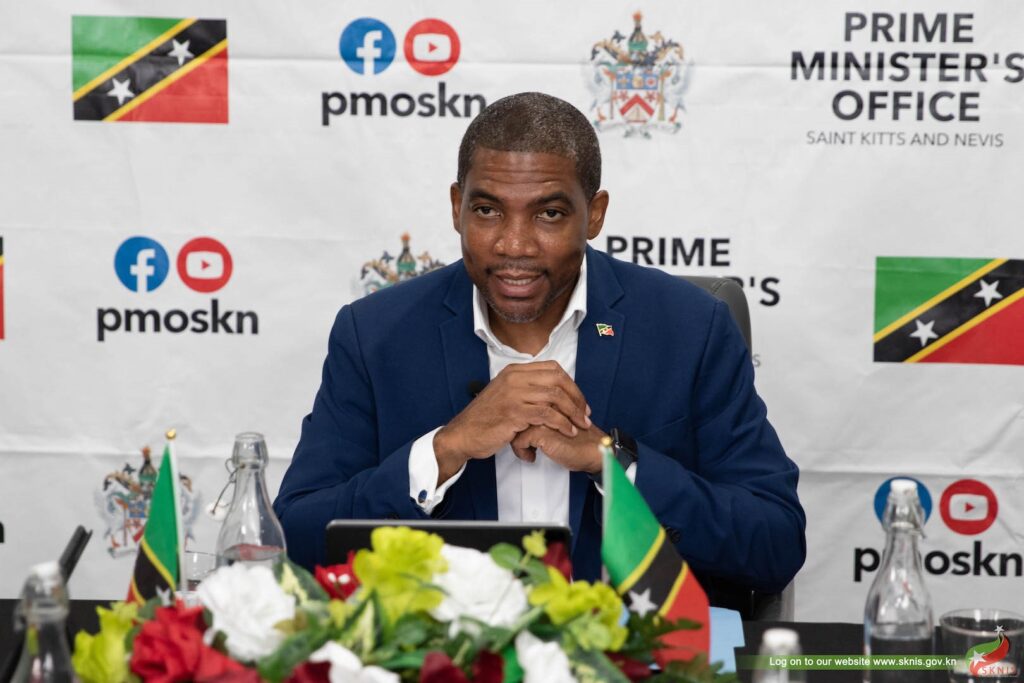
“With these storms that would be coming through the Region, if it is one facility or institution that should remain standing it should be a hospital. When I hear reports that the hospitals in the Grenadines are basically destroyed and people don’t know what has happened to the patients there, it is frightening.”The Honourable Dr Terrance Drew, Prime Minister of St. Kitts and Nevis
Following the extensive damage caused by Hurricane Beryl’s passage in the Caribbean, the Honourable Dr Terrance Drew, Prime Minister of St. Kitts and Nevis, issued a stark warning about climate change and its impact on Small Island Developing States (SIDS).
Prime Minister Dr Drew, who is responsible for Human Resource Development, Health, and HIV and AIDS in the CARICOM Quasi-Cabinet, shared his concerns during his address to the People of Saint Kitts and Nevis earlier this week. He expressed his sadness and sympathy to the Caribbean nations affected by the hurricane, including Grenada and St. Vincent and the Grenadines. He made it clear that the devastation experienced was not just a natural disaster but a sign of the looming threat of climate change.
“This is one of the things I’ve been talking about since coming to office, that we face an existential threat and that threat is the climate crisis,” stated the Prime Minister. “This year, we are seeing a record with a Category 5 hurricane in the month of June, and this has occurred because the temperatures of the seas are high. The temperatures we are seeing now are the temperatures normally seen sometime in August/September, but we are seeing it now in the very early part of the hurricane season, and that means that we are in for a rough ride in 2024.”
Dr Drew emphasised that the unfortunate situation of deteriorating climatic conditions and their negative impact on livelihoods strengthen the government’s unwavering commitment to transform the Federation into a sustainable island state, one that is more resilient to increasingly intense disasters.
“With these storms that would be coming through the Region, if it is one facility or institution that should remain standing it should be a hospital. When I hear reports that the hospitals in the Grenadines are basically destroyed and people don’t know what has happened to the patients there, it is frightening. When you hear 90 plus percent of the houses and buildings were damaged and the islands are basically uninhabitable at this time, it tells us that the climate crisis is real and it is really an existential threat and we must act,” stated the Prime Minister.
Following the devastation caused by Hurricane Beryl, thousands of people are still without power, and many are in temporary shelters in St Vincent and the Grenadines and Grenada.
Alleviating the impact of disasters such as this was the focus of CARICOM’s advocacy at the UN Climate Change Conference (COP 28), held from 30 November to 13 December 2023. The conference concluded with a call for governments to speed up the transition away from fossil fuels to renewables such as wind and solar power in their next round of climate commitments.
These commitments are of particular concern to SIDS as the Caribbean Institute of Meteorology and Hydrology (CIMH) cautioned that 2024 is predicted to be a year of climate extremes for the Region.
